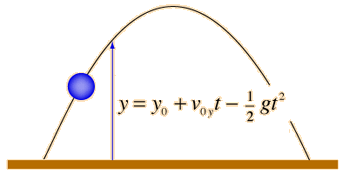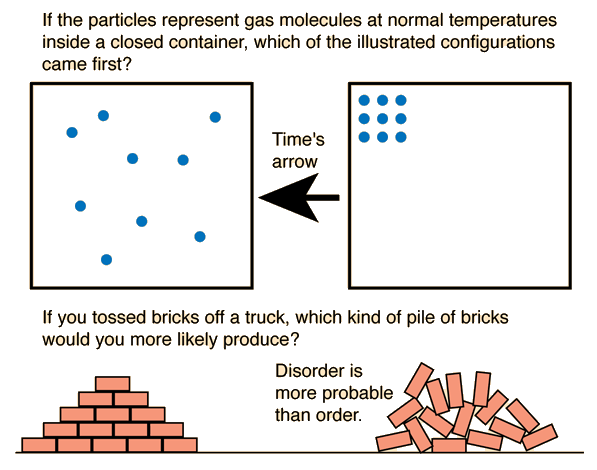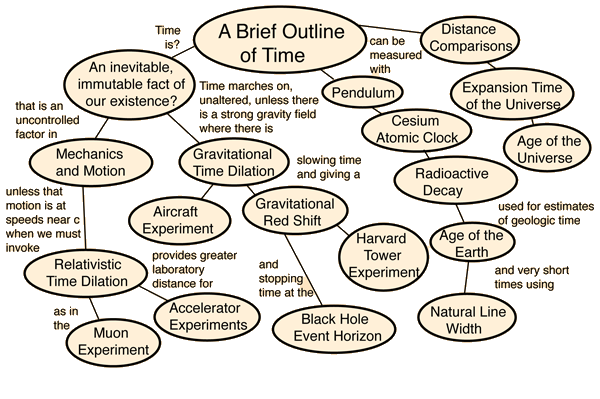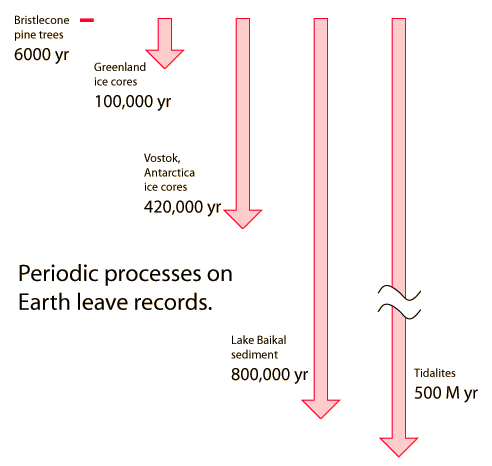Is time immutable?
Our common sense tells us that we have no control over time, and our cultures are full of sayings like "time marches on" which suggest that the inevitable flow of time is independent of all other aspects of our existence.
Our experience with mechanical reality reinforces the notion of time as an independent variable. For example, if we throw a ball, it follows a well-defined and deterministic trajectory determined by the acceleration of gravity and the initial conditions. Once those initial conditions are specified, the position of the ball can be calculated precisely at any time t.
 | When we see the ball in motion, we follow it with the progress of time and clearly perceive the direction of time, but the equations themselves would work just as well with time running backward, as if we played the video of the ball toss backward. The mathematics of Newtonian mechanics does not tell us the direction of time. |
For a system of particles, we might be able to see two snapshots of the system and imply which came first because of the concepts embodied in the second law of thermodynamics, since systems tend to proceed from low entropy to higher entropy. That is, entropy can provide "time's arrow" when we weren't present to observe which came first. Even so, the picture obtained is consistent with time progressing uniformly in a manner independent of the environment.

The first indication that time is not independent of everything else in the universe came with Einstein's development of the ideas of special relativity with the idea of time dilation: time progresses more slowly in a reference frame moving at high speed relative to us. Then in his development of general relativity came the additional idea that time is affected by a gravitational field and therefore proceeds more slowly in the presence of a large gravitational mass.
While the common sense picture of time as immutable applies to the vast majority of our experience, the picture that arises from relativity is that the universe is more accurately pictured as a space-time continuum where there can be mixing or transformation of the space and time coordinates. Transforming to another space reference frame can also alter a measured time interval. This is seen clearly in the muon experiment and also experienced routinely in the range of unstable particles in accelerators.
More profound alteration of our common sense time notions occurs near a black hole where the rate of time progress approaches zero as the event horizon is approached. This can also lead to modeling of the big bang as a beginning of space and time.
|



